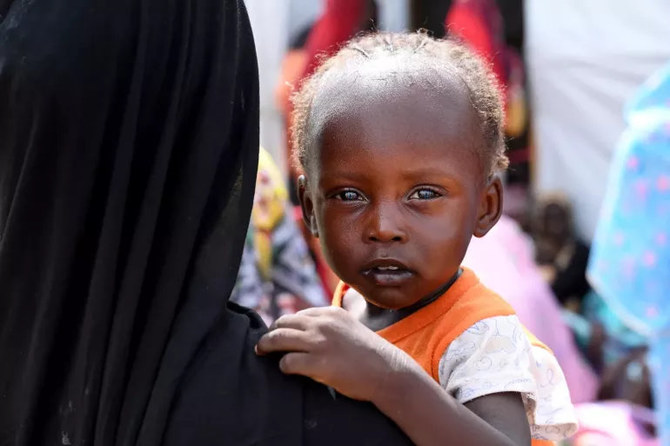
Nigeria Among Top 20 Countries With Highest Number Of Children In Severe Food Poverty -UNICEF

A recent UNICEF report has revealed that one in three children under the age of five in Nigeria is suffering from severe food poverty. The figure amounts to approximately 11 million children. This crisis makes these children 50% more likely to experience wasting, a life-threatening form of malnutrition.
The report highlighted the global issue of dietary deprivation among young children, affecting 181 million children in nearly 100 countries. Nigeria ranks among the top 20 countries with the highest number of children in severe food poverty, accounting for almost two-thirds of the global population.
Globally, four of five children experiencing food poverty are fed only breast milk or milk and a starchy staple like rice, maise, or wheat. Less than 10% of these children consume fruits and vegetables, and fewer than 5% are given nutrient-dense foods such as eggs, fish, poultry, or meat.
A separate report, Cadre Harmonisé, estimates that nearly 32 million people across 26 Nigerian states will face food insecurity during the lean season between June and August this year.
Factors contributing to the child food poverty crisis in Nigeria include food systems that do not provide nutritious and accessible options, families’ inability to afford healthy foods, and parents’ lack of knowledge about positive feeding practices. Additionally, the aggressive marketing of ultra-processed and sugary foods has worsened the problem, making these unhealthy options the new norm for many children.
WHO noted that Nigeria has made slight progress. The proportion of children facing severe food poverty decreased from 45% in 2012 to 32% in 2022. However, disparities remain significant, with 44% of children in the poorest families affected, compared to 17% in the wealthiest families.
To combat child food poverty, UNICEF called on governments, development and humanitarian organisations, donors, civil society, and the food and beverage industry to:
– Transform food systems to make nutritious, diverse, and healthy foods more accessible and affordable.
– Utilise health systems to deliver essential nutrition services and support community health workers in counselling parents on feeding practices.
– Activate social protection systems to address income poverty through social transfers responsive to the food and nutrition needs of vulnerable children and their families.
UNICEF also highlighted the Child Nutrition Fund (CNF), launched in Nigeria last year to incentivise domestic investments to end child malnutrition. So far, only four states have reportedly released funds to the CNF, with nine more pledging support.
Read: Samsung Workers Stage First-ever Strike Over Pay Dispute In South Korea
About The Author
Related Articles
MultiChoice Pumps GH¢200 Million Into Ghana’s Creative Industry
MultiChoice Ghana has invested more than GH¢200 million into the country’s creative...
ByWest Africa WeeklyMarch 5, 2026FIFA Confirms DR Congo Playoff Spot, Ending Nigeria’s World Cup Dream
Nigeria’s hopes of qualifying for the 2026 FIFA World Cup have come...
ByWest Africa WeeklyMarch 5, 2026Ghanaians to Travel to St Kitts and Nevis Without Visa
Ghanaian citizens will soon be able to travel to the Caribbean nation...
ByWest Africa WeeklyMarch 5, 2026Ghana Records Sharp Drop in Inflation, Lowest Since 2021
Ghana’s inflation rate dropped to 3.3 percent in February 2026, marking the...
ByWest Africa WeeklyMarch 5, 2026










